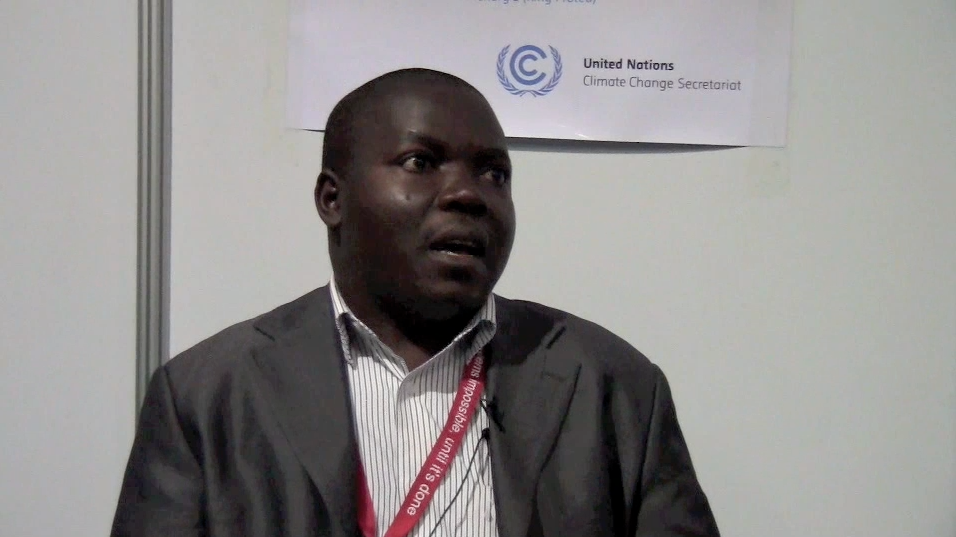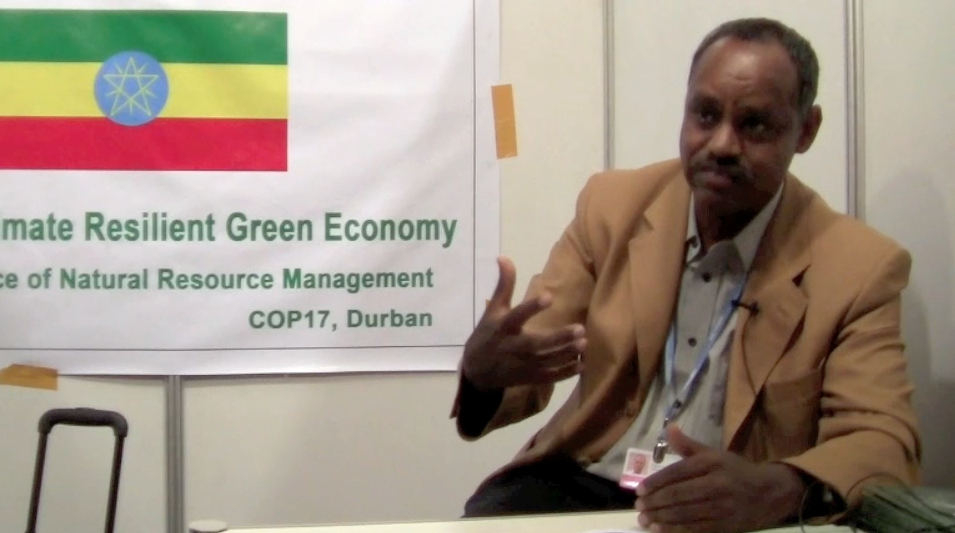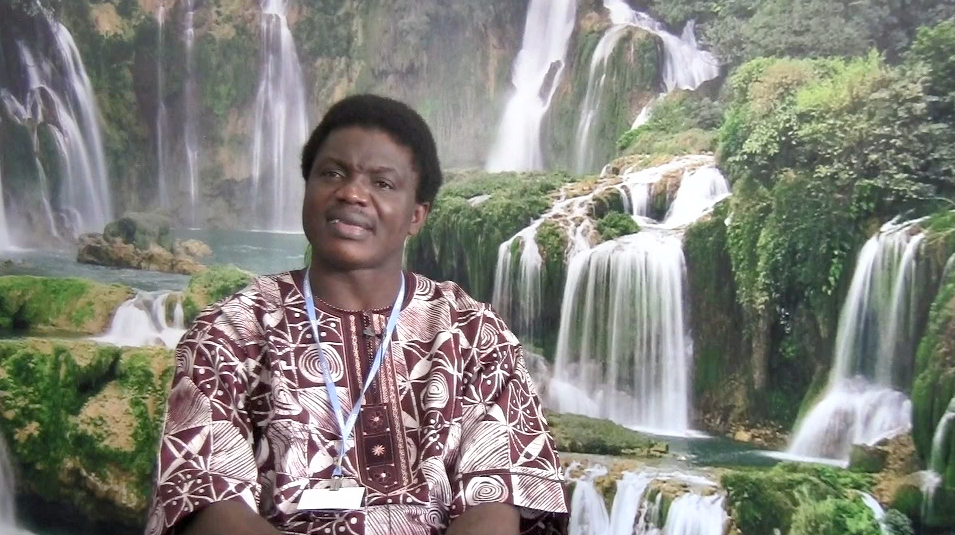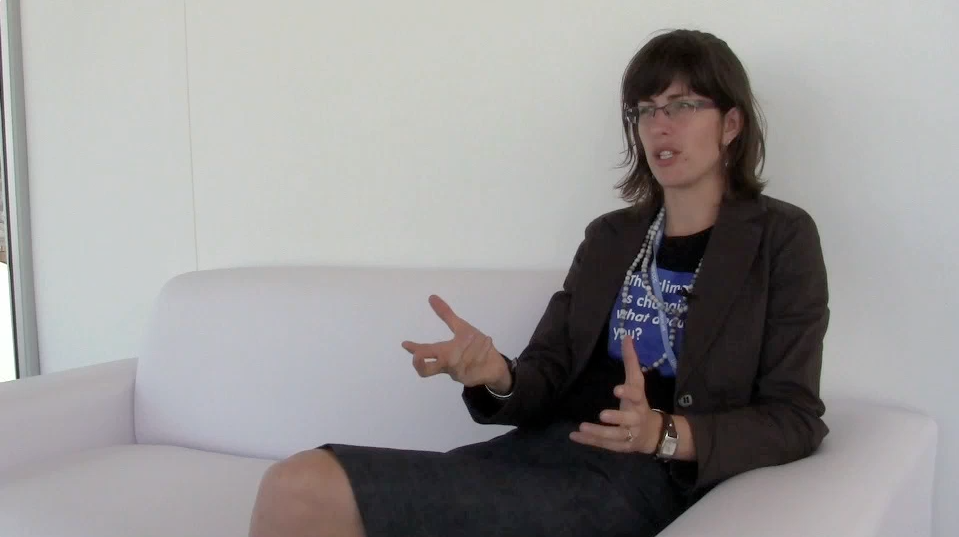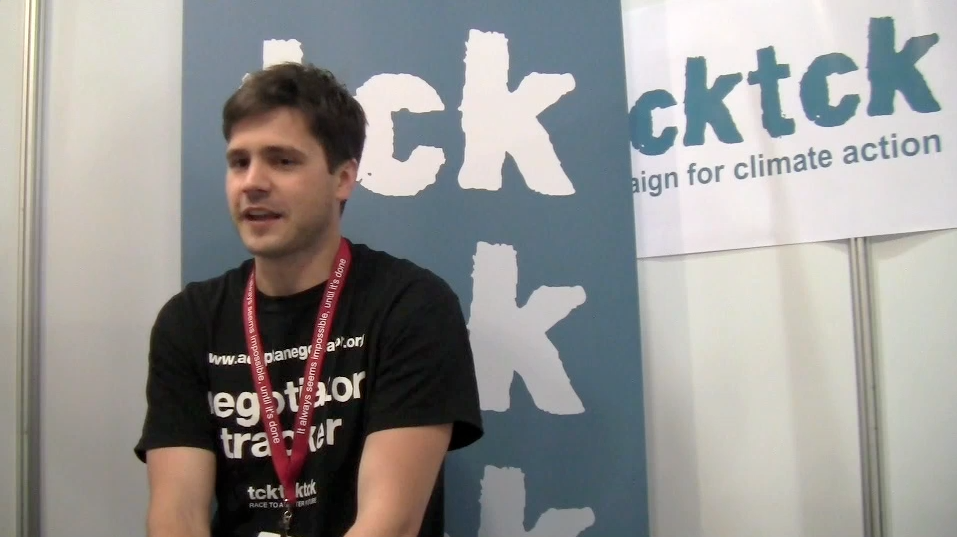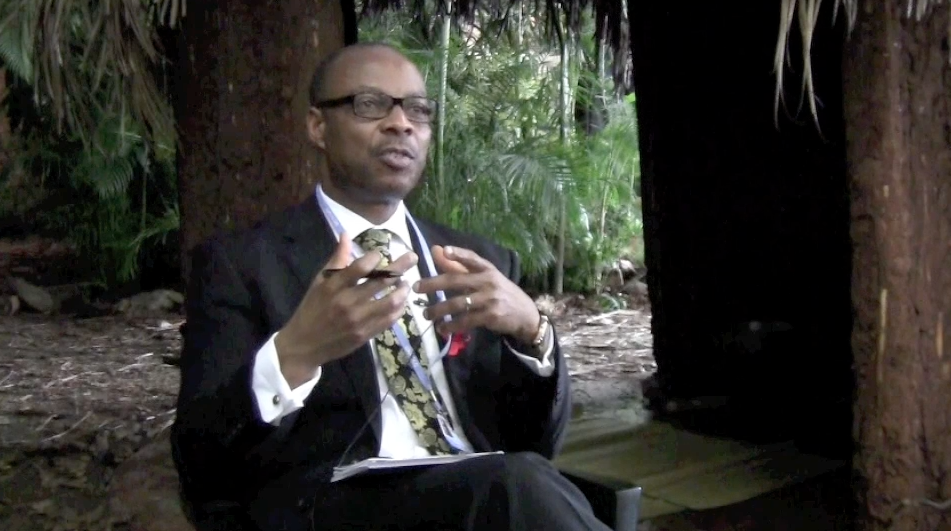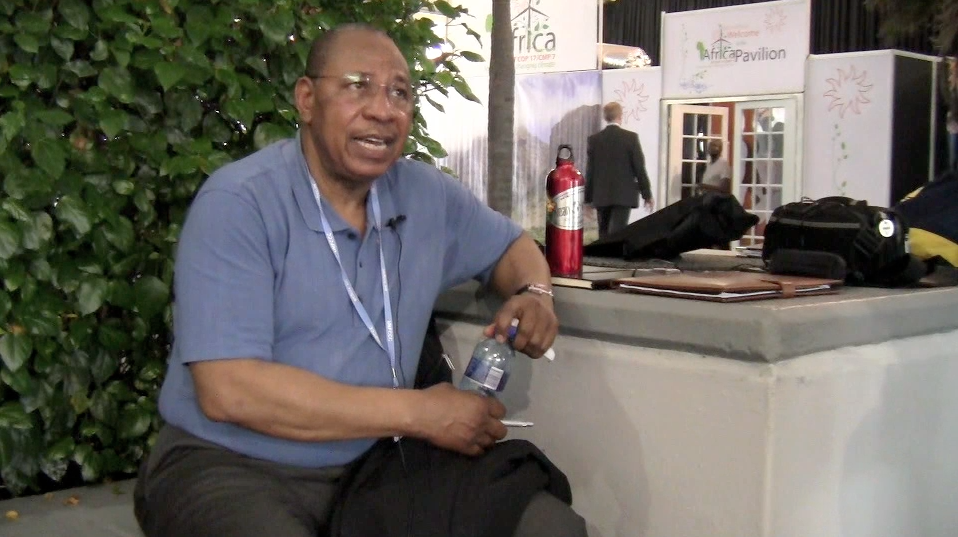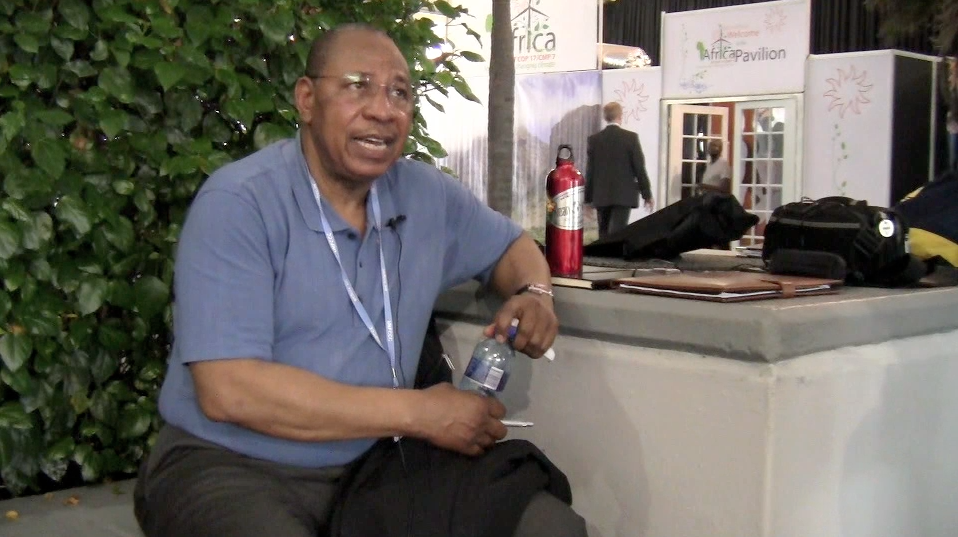Interviewed by Emily Bowie on December 9, 2012, COP 17, Durban, South Africa
Category: Capacity Building
Mr. Negash Teklu from Ethiopia, Executive Director of Population, Health, Environment (PHE) Consortium Ethiopia and COP 17 Party Member to Ethiopia, discusses the activities of PHE-Ethiopia including pilot sites, social research and workshops. He then explains the sources and system of funding for the organization.
Interviewed by Emily Bowie on December 6, 2011, COP 17, Durban, South Africa
Mayor Ayodele Adebowale Adewale of Lagos, Nigeria discusses Nigeria’s position within the negotiations and a multitude of sustainable initiatives occurring in Lagos, and calls for developed countries to help developing countries adapt and mitigate for the good of the entire planet.
Interviewed by Elena Capaldi and Anna McGinn on December 5, 2011, COP 17, Durban, South Africa
Ms. Anna Taylor of the African Center for Cities and the Stockholm Environment Institute discusses how the outcomes of the COP will most likely create a downstream effect over development in South Africa that may not be immediately noticeable or easily tracked.
Interviewed by Emily Bowie, Elena Capaldi and Maggie Rees on December 5, 2011, COP 17, Durban, South Africa
Ms. Anna Taylor of the African Center for Cities and the Stockholm Environment Institute discusses her work through both institutions looking at vulnerability and adaptation initiatives. She explains how she is promoting their research, making connections and learning more about climate change. She then explains her hopes for the outcome of the COP and her belief in the need to lead by example. She calls for an end in the negotiations standoff.
Interviewed by Emily Bowie, Elena Capaldi and Maggie Rees on December 5, 2011, COP 17, Durban, South Africa
Dr. Kevin C. Urama, Executive Director of the African Technology Policy Studies Network (ATPS), voices his desire for the government’s of the world to wise up and save the planet. He calls for a legally binding agreement and praises the knowledge sharing occurring at COP 17 between countries. Urama then explains that African adaptation initiatives are coming from multiple actors, the most interesting being rural farmers who are forced to adapt out of necessity. He says funding for these activities comes from multiple relationships – mainly bilateral international and national agencies. He calls for the private sector to invest in adaptation initiatives because governments cannot fund it forever and, he claims, they could make business out of it.
Interviewed by Emily Bowie on December 5, 2011, COP 17, Durban, South Africa
Josh Weise, a United States youth and Project Director of the “Adopt a Negotiator” project, calls to USA youth not to be discouraged by the lack of activity of their government on this front and to instead, mobilize at the local and state levels. He asks them not to lose sight of the bigger vision of national change, saying this will come out of the grassroots mobilization. He asks youth to make sure their efforts are adding to real change on the ground.
Interviewed by Danielle Thompson on December 2, 2011, COP 17, Durban, South Africa
Dr. Tony Nyong, Principle Climate Change Expert at the African Development Bank, discusses how local communities have been adapting to climate forever, but that adaptation to anthropogenic climate changes needs to come from a variety of sources. More specifically, he emphasizes that different planning efforts for adaptation are done at different levels and therefore funding has to come from a variety of places including local, national and international sources. He also talks about the role adaptation is playing at COP 17.
Interviewed by Esther Babson, Emily Bowie, Christine Burns, and Maggie Rees on December 1, 2011, COP 17, Durban, South Africa
Dr. Saleemul Huq, Senior Fellow at the International Institute for Environment and Development Climate Change Group, explains the role of vulnerable countries in the negotiations under three main groups: AOSIS, LDCs and the African Group. He continues to explain what these countries should aspire to do in the face of no binding agreement.
Interviewed by Esther Babson, Anna McGinn, Maggie Rees and Claire Tighe on November 30, 2011, COP 17, Durban, South Africa
Dr. Youba Sokona of Ethiopia, the coordinator of the African Climate Policy Centre (ACPC) based in the UN Economic Commission for Africa, discusses the need for a new global paradigm. He also explains the opportunity Africa faces to embark of “jump-start” sustainable development due to the primary stages of development the continent is currently in. He names the four biggest barriers to this solution: political will, institutions, finance and short-term focus. He then provides examples for how each of these barriers can be broken.
Interviewed by Elena Capaldi, Maggie Rees and Emily Bowie on November 30, 2011, COP 17, Durban, South Africa
Dr. Youba Sokona of Ethiopia, the coordinator of the African Climate Policy Centre (ACPC) based in the UN Economic Commission for Africa, discusses how the primary concern of all African countries is development and how through climate research over the past few decades his organization has seen the need for countries to revisit their development objectives. He calls for these countries to follow a different development path.
Interviewed by Elena Capaldi, Maggie Rees and Emily Bowie on November 30, 2011, COP 17, Durban, South Africa
Mr. Abias Huongo of the Angola delegation, founder and president of Angola’s biggest environmental organization Juventude Ecologica d’ Angola, discusses Angola’s interest in a second commitment of the Kyoto Protocol, long term finance, capacity building and technology transfer. He points out other countries that have similar and differing perspectives from Angola’s.
Interviewed by Esther Babson and Christine Burns on November 29, 2011, COP 17,
